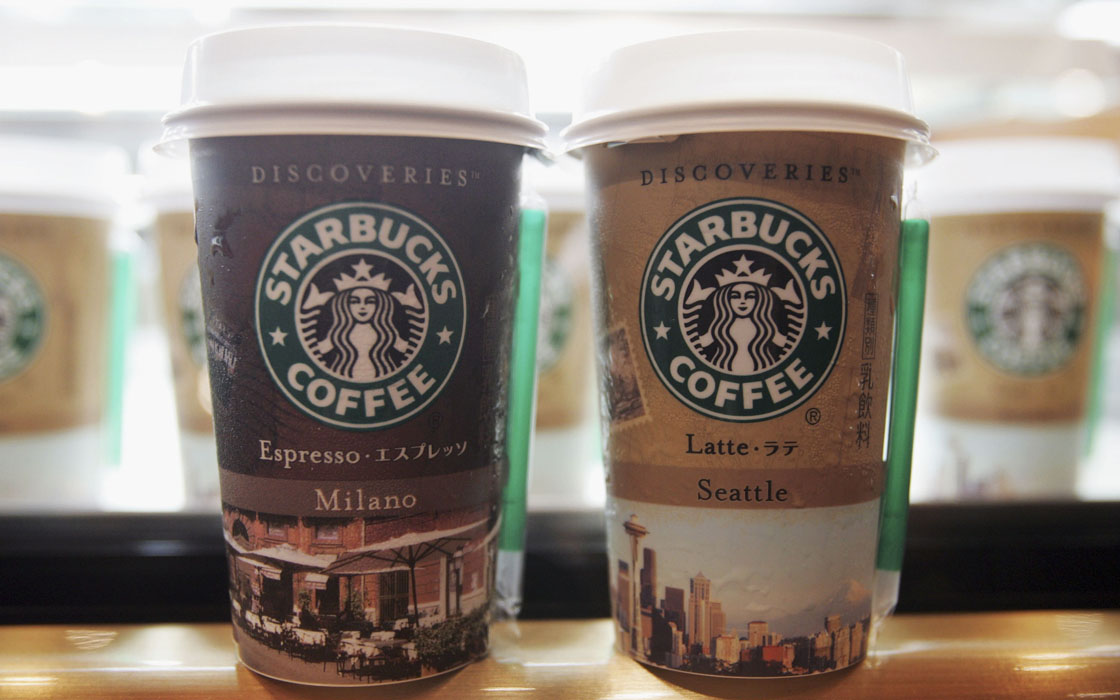TORONTO – Whether you prefer regular or decaf, coffee drinkers have reason to smile today. A study published Thursday in the New England Journal of Medicine finds that coffee drinkers are more likely to live longer.

But, as java drinkers across the country let out a collective “Yippee! Double-doubles for everyone!” you may want to read the fine print first.
The study is not declaring a definitive cause-and-effect between drinking coffee and living longer. Rather, it was based strictly on observing people’s habits and resulting health, and found that coffee and a long life seem related.
The study followed over 400,000 participants, the largest ever done on the issue.
It found that even a single cup a day seemed to lower the risk of death a little: 6 per cent in men and 5 per cent in women.
In addition to having a longer life, coffee drinkers in this study were also less likely to die from heart or respiratory disease, stroke and diabetes.
“There may actually be a modest benefit of coffee drinking,” says lead researcher Neal Freedman of the National Cancer Institute.
The catch? No one knows why.
- A spoonful of olive oil a day could reduce risk of death from dementia: study
- Wegovy now in Canada: Who should (and shouldn’t) use the weight-loss drug
- N.B. woman must move to Toronto for life-saving lung transplant. She can’t afford to go
- Amid bird flu spread, Canada boosts surveillance and testing at border
Coffee contains a myriad of properties that are believed to affect health, including antioxidants and minerals that help the body control blood sugar, to substances linked to cancer and high bad cholesterol and blood pressure.
The most widely studied ingredient in coffee – caffeine – didn’t play a role in the study’s results.
The other catch with studies on coffee is that they apply to just that – plain, black, ordinary coffee.
Often studies are released that, on the surface, seem worth celebrating – Finally! I can eat chocolate cake for breakfast and lose weight!– But, interpreting the study’s findings to fit your desire to indulge can counteract any potential health benefits.
Dr. Frank Hu of the Harvard School of Public Health warns that sugar and cream often added to coffee could negate any benefits from the coffee itself.
Other things to watch out for are those coffee-like drinks, which when looked at closely contain very little actual coffee, if any at all.
So before you zip over to the drive-thru for an extra big, full-whip, mocha coffee delight, Global News compares the nutritional information of 10 popular cafe beverages.
- Tim Hortons large double-double: 280 cal, 14 g fat, 2 g, 34 g carbs, 34 g sugar
- Tim Hortons large iced cap (original with cream): 470 cal, 20 g fat, 63 g carbs, 62 g sugar
- McDonald’s large iced coffee: 240 cal, 11 g fat, 32 g carbs, 32 g sugar
- McDonald’s large caramel cappuccino with 2% milk: 200 cal, 4.5 g fat, 30 g carbs, 31 g sugar
- McDonald’s large mocha with skim milk: 270 cal, 5 g fat, 46 g carbs, 42 g sugar
- Starbucks grande (large) green tea latte with 2% milk: 350 cal, 8 g fat, 57 g carbs, 55 g sugar
- Starbucks grande (large) vanilla bean Frappuccino (nonfat milk, without whipped cream): 240 cal, 0.1 g fat, 56 g carbs, 55 g sugar
- Second Cup large moccaccino with skim milk: 222 cal, 4.2 g fat, 37.8 carbs, 31.2 g sugar
- Second Cup large vanilla bean latte with soy milk: 256 cal, 8.8 g fat, 37.5 g carbs, 31.2 g sugar
- Black coffee: 0 cal, 0 g fat, 0 g carbs, 0 g sugar
With files from The Associated Press




Comments